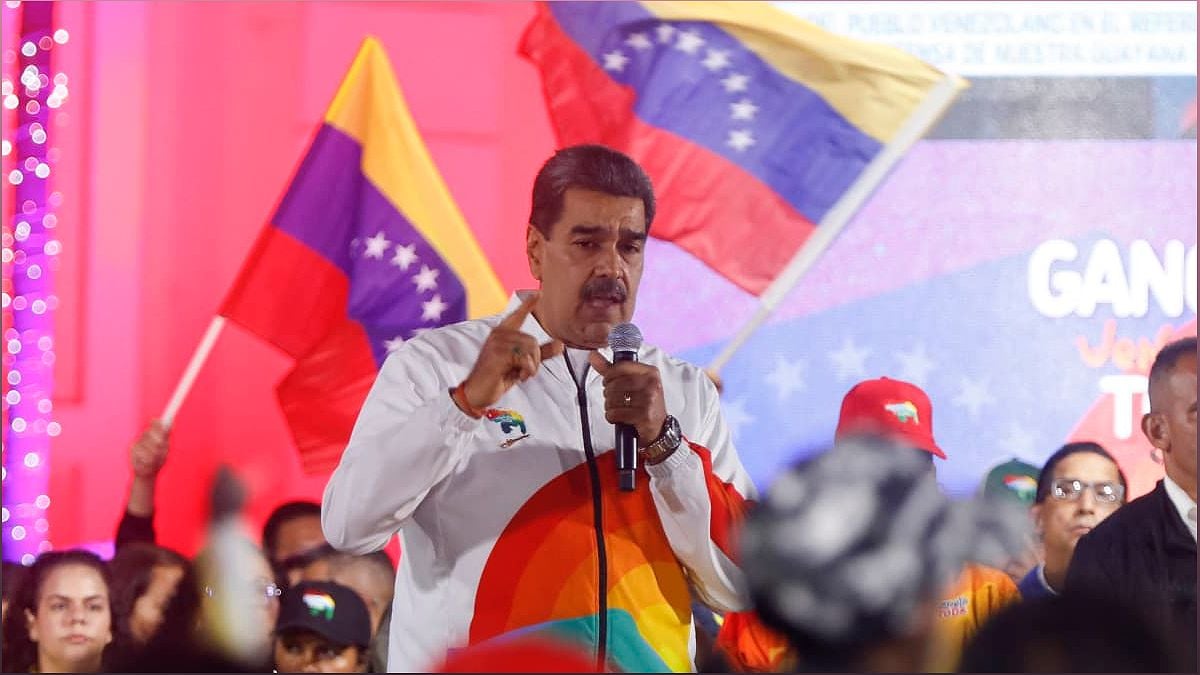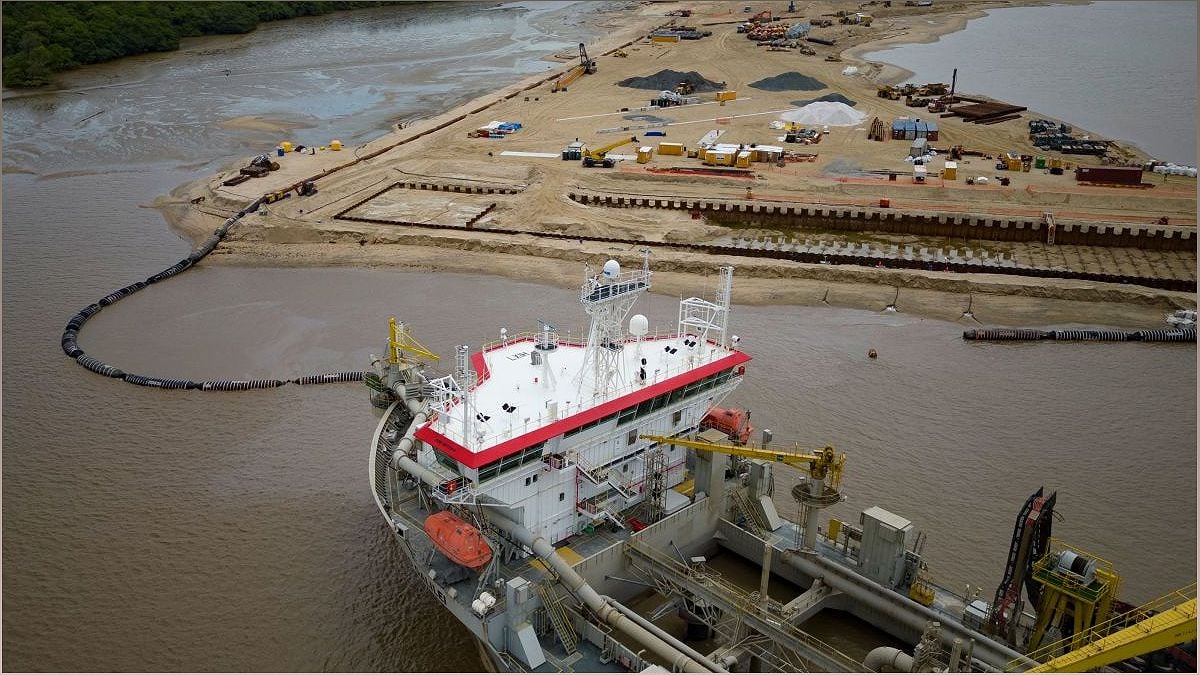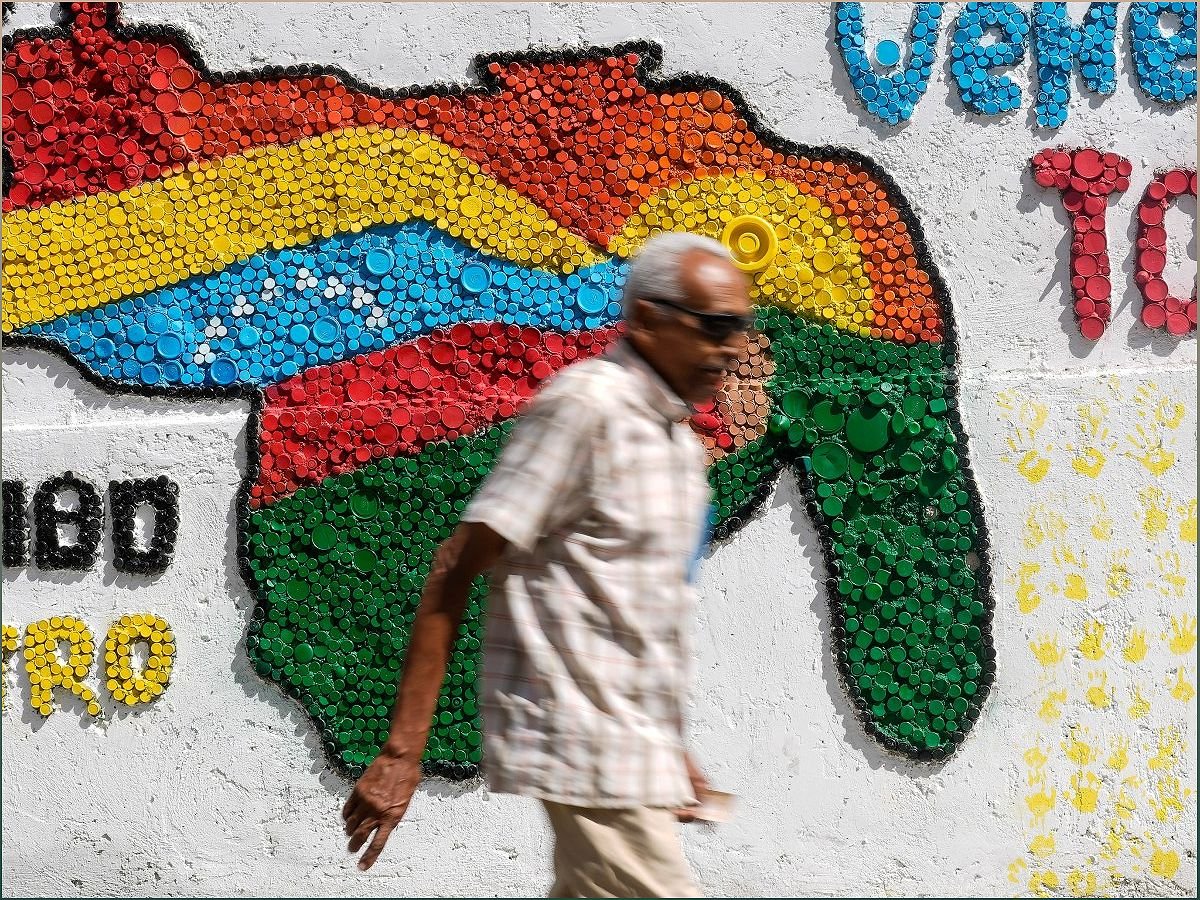Venezuelans Vote in Referendum to Claim Sovereignty over Contested Territory
In a recent referendum, Venezuelans have made a significant move to claim sovereignty over a long-disputed territory, intensifying the ongoing conflict with Guyana. This article delves into the details of this territorial dispute, the reasons behind it, and the potential consequences it may have. Join me as we explore the complexities of this issue and its impact on the region.
The Territorial Dispute: A Brief Overview
Explore the historical background and key details of the territorial dispute between Venezuela and Guyana.
The territorial dispute between Venezuela and Guyana has been a longstanding issue that dates back over a century. It revolves around the contested area known as the Essequibo, which makes up two-thirds of Guyana’s territory.

At the heart of the dispute is a 1899 international arbitral tribunal award that granted the Essequibo region to Britain. However, Venezuela has actively disputed this award, claiming that Guyana has no right to grant oil concessions in the disputed territory.

The tensions between the two countries have escalated in recent years due to oil exploration operations by companies like ExxonMobil in the Essequibo region. Venezuela’s recent referendum to claim sovereignty over the area has further intensified the conflict.
Implications for Oil Reserves and Supply
Understand the significance of the disputed Essequibo region in terms of oil reserves and its potential impact on the global oil supply.
The Essequibo region, which is at the center of the territorial dispute, is known to contain significant oil reserves. This has attracted the attention of oil exploration companies, leading to increased tensions between Venezuela and Guyana.

With the global demand for oil and the importance of stable oil supply, any disruptions or conflicts in the Essequibo region could have far-reaching implications. It is crucial to closely monitor the situation and its potential impact on the global oil market.

Legal Battle and International Intervention
Discover the legal battle surrounding the territorial dispute and the involvement of the International Court of Justice (ICJ).
Guyana, maintaining that the 1899 award is legal and binding, sought the intervention of the International Court of Justice (ICJ) in 2018. The ICJ is currently examining the case and its jurisdiction over the dispute.
The legal battle between Venezuela and Guyana adds another layer of complexity to the territorial dispute. The outcome of the ICJ’s involvement will have significant implications for both countries and the resolution of the conflict.
Potential Consequences and International Relations
Analyze the potential consequences of the referendum and its impact on international relations, particularly between Venezuela and the United States.
The recent referendum by Venezuela to claim sovereignty over the disputed territory has raised concerns and potential consequences. It is important to assess the impact this move may have on international relations, particularly between Venezuela and the United States.
Given the existing tensions and the United States’ imposition of oil export sanctions against Venezuela, the referendum is unlikely to improve relations between the two countries. Experts warn of the risks posed by the territorial dispute and expect the U.S. government to defend Guyana if Venezuela were to take aggressive actions.
